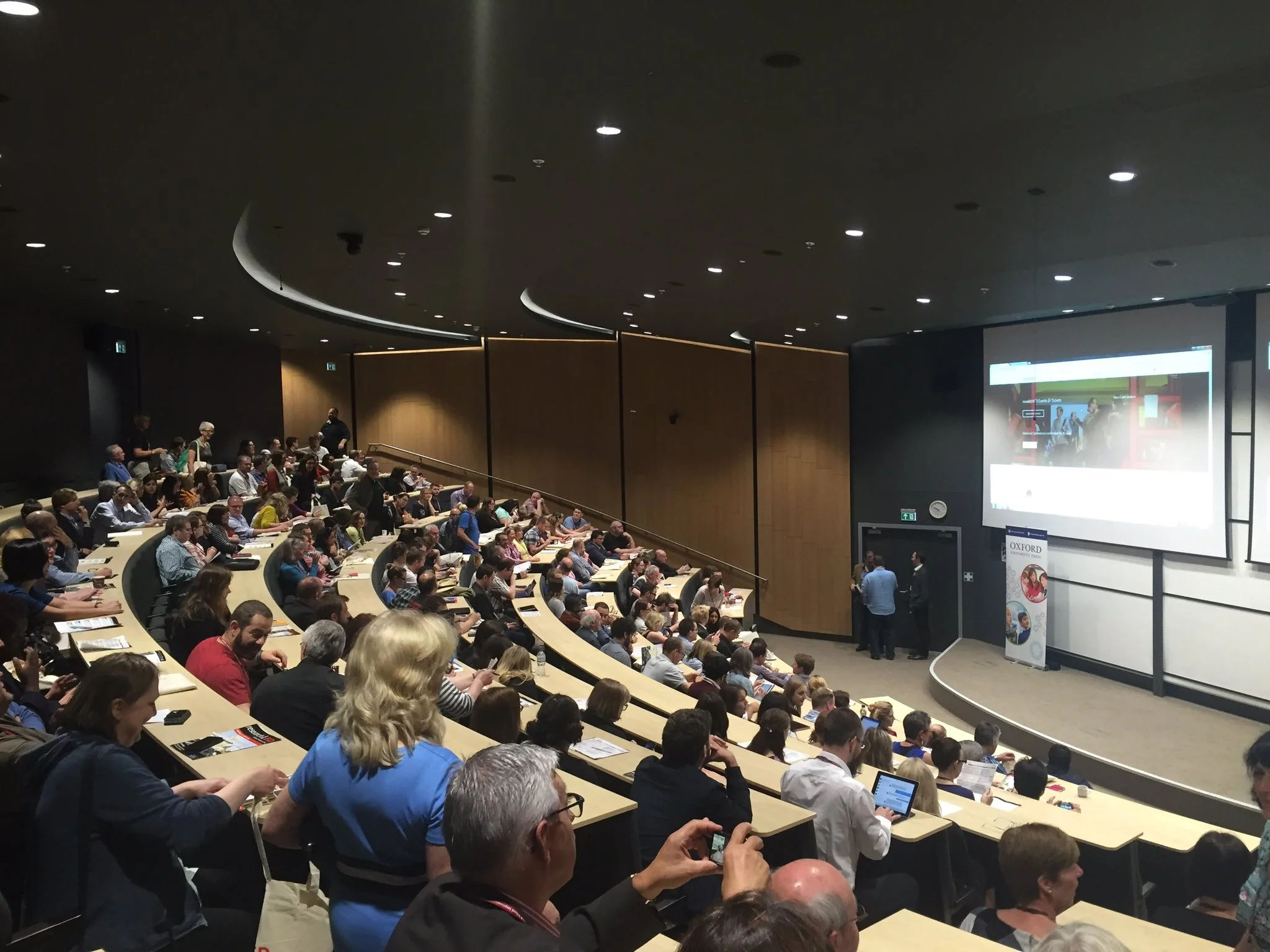A Student's Journey Through Learning: How Can Cognitive Psychologists Help?
By: Yana Weinstein
Last week, I gave a talk at researchED Math & Science at Oxford University. I have never been to a conference where the attendees seemed so genuinely excited! The place was buzzing as we prepared for the opening speech.
Photograph taken by Yana at researchED on June 11th, 2016
For those who couldn’t make it – or those who would like to look back at the slides – here they are, with a brief summary of the talk.
Part 1
Science Communication (aka: how Twitter changed my life)
Here, I talked about how overnight a silly idea turned into a huge science communication project. To read more about this, please see our story on the APA graduate student blog.
Part 2
- How can (and can’t) cognitive psychologists help education?
In this part, I wanted to be upfront and honest about the limitations of cognitive psychology, so that we can focus on the ways in which we really can help education, rather than making false claims.
Slides from Yana's presentation
- Two myths about cognitive psychology
In the popular press, the term “cognitive psychologist” is often used interchangeably with “neuroscientist”. These are not the same discipline! I explained this myth, and also the false notion that cognitive psychologists always use meaningless materials and never leave the lab.
Part 3
- The big 2: retrieval practice and spacing
Here I explained the principles of retrieval practice and spacing, focusing on how they can help long-term learning. However, I also included a caveat slide showing a study in which neither technique helped learning! Unfortunately, there are no guarantees that even the best learning strategies will always yield significantly better results.
- FAQs about the big 2
Next, I addressed three questions with data from recent studies conducted by our team. Each question is described further in a linked blog post:
- Which quiz format should be used for retrieval practice?
- When in a lesson should retrieval practice occur?
- Should students answer practice questions, or make up their own?
- How can teachers help?
I ended the talk by discussing whether students know good strategies by the time they get to college/university (they don’t). What can we do to change this? I’d love to hear your thoughts!
Graph of data from an unpublished diary study by Weinstein and colleagues





